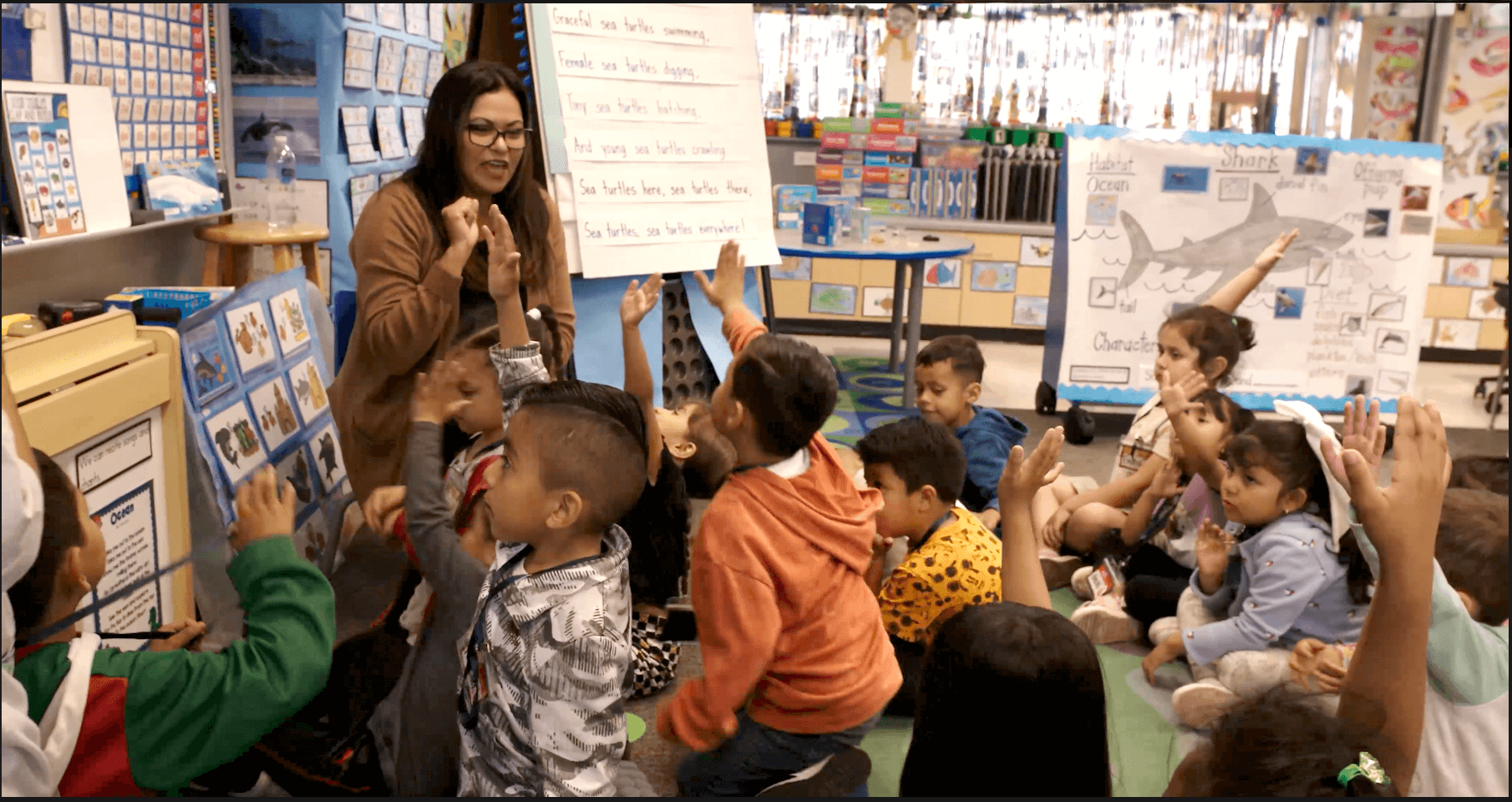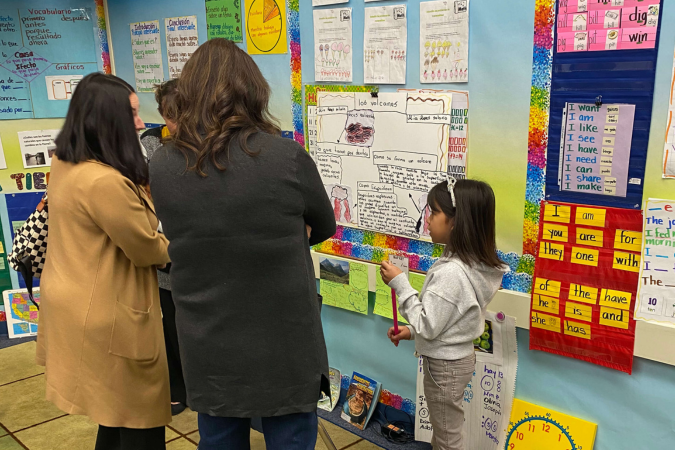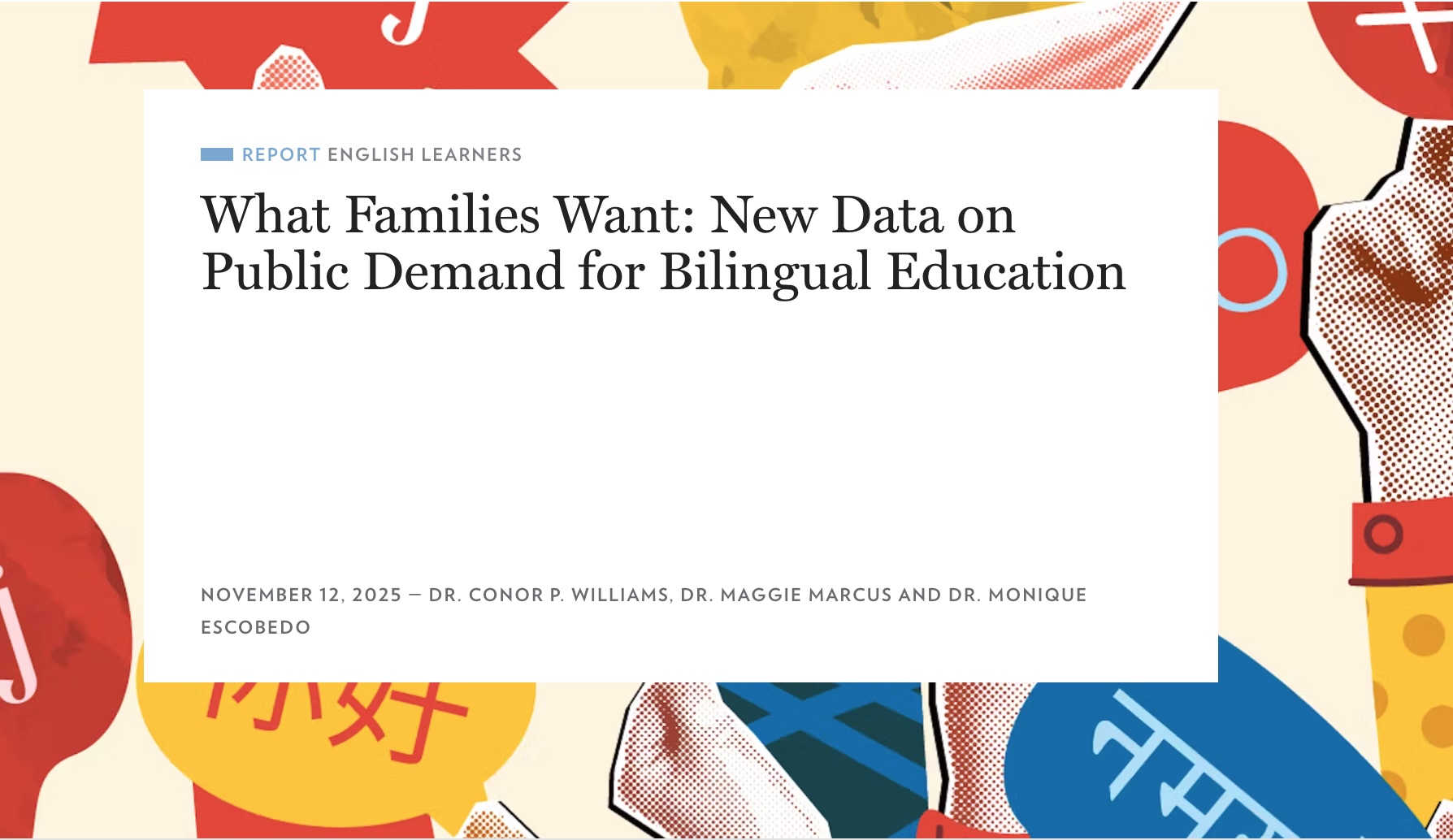
What Does It Mean to Center Equity and Belonging?
Dear Colleagues,
Last month I had the opportunity to participate in two important discussions about school transformation and high-quality learning environments for all students, but especially for our English Learners/Dual Language Learners (ELs/DLLs) and students of color. These conversations were anchored in research and best practices, but more importantly, they lift up the stories of educators who are doing incredible work in classrooms across California and the nation.
On November 2, I had the pleasure of moderating a panel at the Fall 2022 Birth to Twelve Grade Water Cooler Conference focused on centering equity K12 systems. In California, we have what many would describe as an equity-driven educational policy context, with LCFF at the core. But is LCFF advancing equity as intended? A recent report authored by Californians Together and the Center for Equity for English Learners titled, “In Search of Equity for English Learners: A Review of Local Control and Accountability Plans”, found that as we approach ten-year mark of LCFF, “… the search for equity continues to mirror the search for ‘a needle in a haystack’”.
I opened the panel discussion with this framing and asked each participant – what does it mean to center equity and belonging in our K12 systems? It was a robust conversation that spanned the local and state policy, practice, and legislative levels. At SEAL, we believe one of the key aspects of belonging and equity is teacher agency– the idea that teachers need to feel engaged, empowered, and at the helm of equity-focused teaching and learning.

Likewise, I was also able to participate in a dynamic conversation co-hosted by The Campaign for Grade-Level Reading and New America on November 30 titled, “Play + Academics + Relationships: Teaching in Ways Kindergarteners Learn Best”. It was refreshing that this panel discussion was framed in a robust manner, resisting the strong tendency to be reductive within these kinds of conversations, especially given all our fears about learning loss and pandemic recovery.
The three essential elements of quality Kindergarten I uplifted were– 1) deep engagement, 2) language development across all content, and 3) the necessity of culturally and linguistically affirming learning. These are critical to ensuring all children have access to joyful, supportive, equity focused learning, especially DLL/ELs. Furthermore, teachers need time, support, training, and coaching to increase their ability to be intentional about their planning, so the learning becomes evermore deep and rich.
As we approach the half-way point for this 2022-23 school year, and we prepare for the state budget and policy process in January, SEAL will continue supporting educators and school communities across California while championing the investments and policies needed to center equity and create high-quality learning environments for California’s racially, culturally, linguistically, economically diverse children.In Partnership,Anya Hurwitz
Read More News from SEAL

Learn about changes in policy, up-to-date research, and unique practices to support Dual Language and Multilingual Learners. And don’t forget to sign up for our newsletter here.
%201.svg)


